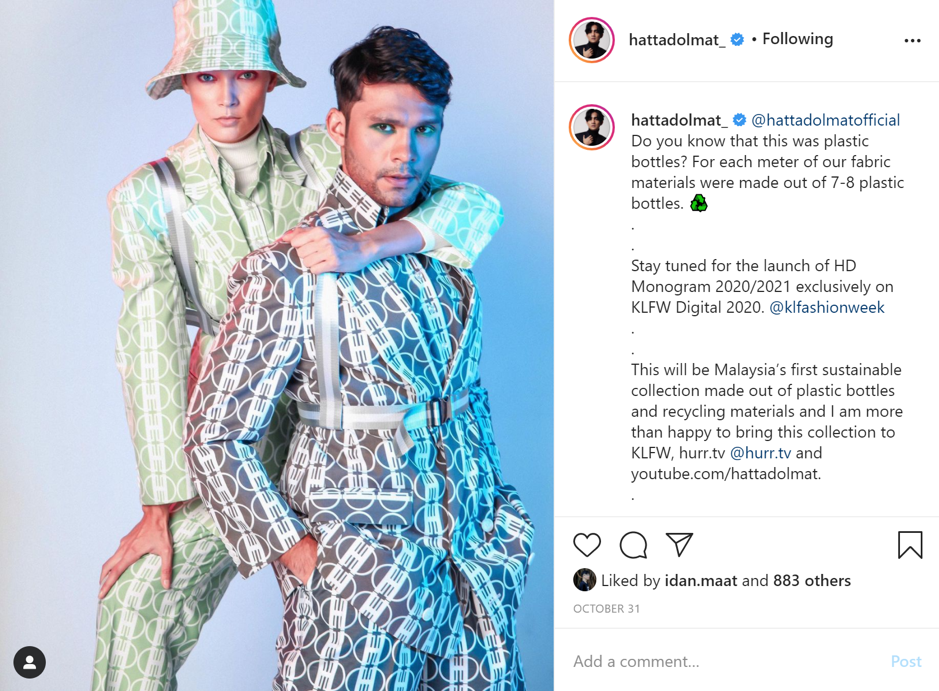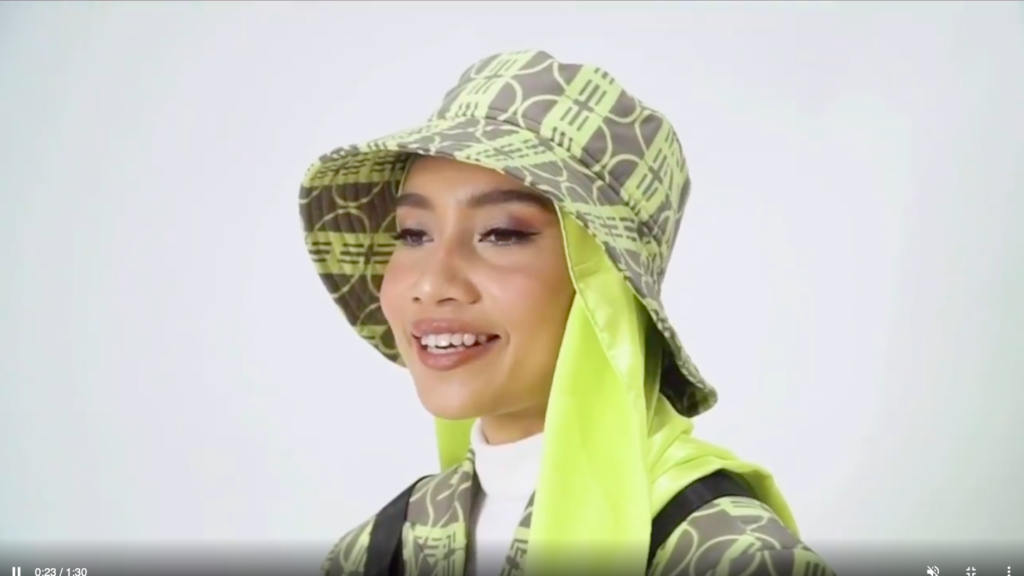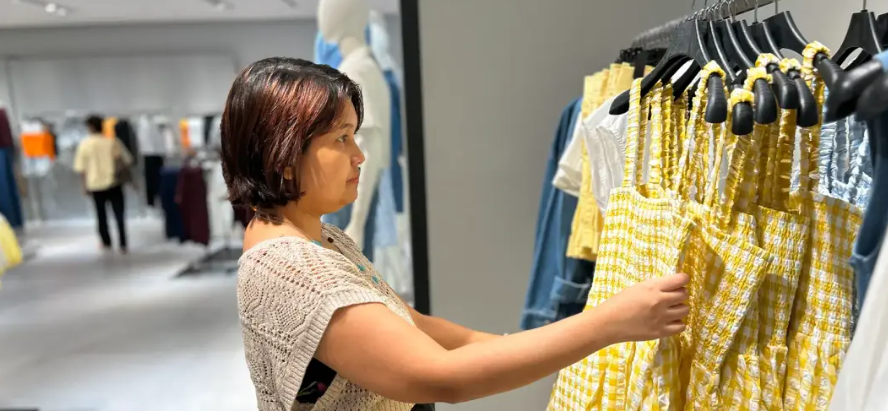Malaysian fashion designer Hatta Dolmat’s sustainable collection showcased at KLFW 2020 last week shows a huge step forward for the local fashion industry and the country’s fight against plastic and textile waste.
By Shareena Aziz
1721 words; 8 min read.
The week that was
Kuala Lumpur Fashion Week (KLFW) has come and gone and this year’s event was definitely a special one. In the midst of a global pandemic, the local fashion industry has shown their resilience and on top of that, their efforts to make fashion more purposeful and meaningful.
A first of its yearly incarnations, KLFW 2020 was all digital – inviting audiences to watch online from all over the world. Not only that, Hatta Dolmat has marked himself as the first Malaysian fashion designer to design a sustainable high fashion range at the event. And, a first for Hatta himself, the collection will be his opening endeavour into addressing environmental issues, not only within the fashion industry but also with the country’s current lack of solution to textile and plastic waste. About 63% of the world’s clothing and apparel are made of polyester. If you haven’t caught on by now, yes, polyester equals plastic.
“[In Malaysia,] we have been struggling with uncontrollable plastic waste management for decades and now, textile waste is aggravating the problem. There is no doubt that ‘fast fashion’ and the local fashion industry are contributing to textile wastes in landfills,” Hatta says.
“Therefore as a fashion designer, it is my responsibility to not just spread awareness on this issue, but to also show the sustainable methods of clothes making to industry players.”

A study by green group WWF last year found that Malaysians were the biggest consumers of plastic packaging among other Southeast Asian countries, including China, Indonesia, the Philippines, Thailand and Vietnam. At almost 17kg of plastic consumption per person each year, devastating news of plastic waste washing up along local shores alarms the need for a proper solution and overwhelming support to mitigate plastic pollution.
Although ranking highest in waste collection as well, the report says that Malaysia’s lack of infrastructure to recycle large amounts of waste is concerning. Adrian Choo, leader of WWF-Malaysia’s sustainable markets program, says “the root cause of plastic waste leakage into the environment is the lack of sound waste management systems.”

Plastic bottles are a huge environmental problem. They are made out of PET (polyethylene terephthalate)
Fabric waste is also plastic waste
Meanwhile, the country’s own Solid Waste Management and Public Cleansing Corporation (SWCorp) also reported that the amount of fabric waste entering landfills has doubled to 6.3 percent in just six years. It was further pointed out that most of these fabric wastes could be reused, recycled or processed to become solid fuel.
The HD Monogram 20/21 collection is released in conjunction with Hatta’s 15th anniversary since his debut, merging together with his early interests of making accessories, such as bags, bucket hats and shoes, out of his fabric remnants. Now, he wants to take that further by designing a whole collection using fabric composed of recycled plastic bottles and organic fibre, commonly called recycled polyester or rPET (recycled polyethylene terephthalate.)
Polyester comes from crude oil which has been known to cause significant damage to the environment during its extraction process, and as a result of its high durability, can take 700 years to decompose. Invented during World War II due to difficulties in obtaining cotton, polyester has bloomed as a versatile fabric that features anywhere within fine apparel and activewear through to UV-rated outdoor gear and cleaning cloths. Polyester fabrics have always been strong, resistant to stretching and shrinking, easy to clean, quick drying and resistant to wrinkles, mildew and abrasions.
Recycled polyester is thought to be a more sustainable option because unlike virgin polyester, it uses plastic that has already been created, such as plastic bottles. These plastic bottles are collected and sorted before being broken down into small flakes. Once cleaned, they are chemically treated into more formed, smaller pieces called pellets or chips. The pieces are melted down, eventually being extruded and bundled into a yarn which can then be woven into fabric.
Not only does this process require less energy and water than the production of virgin polyester, it possesses a lower carbon footprint than both nylon and cotton. It also ensures that plastic, which would otherwise end up in landfills, can be continuously recycled and repurposed, creating an almost infinite lifecycle.

How PET becomes rPET. Source: Kloth Lifestyle.
However, Hatta points out, it doesn’t make a difference if plastic bottles are still being used excessively and disposed of carelessly. As each metre of the fabric can only be made up of seven to eight plastic bottles, he hopes this collection can also inspire people to be more conscious of their plastic consumption.
Kloth Lifestyle comes to the rescue
During the research and development phase of his collection, Hatta felt he needed to get the right information about recycled materials and the exact data of textile waste in Malaysia. He took up the help of SWCorp and Kloth Lifestyle, resulting in their tripartite collaboration towards this collection.
Whilst SWCorp provided their vast data on the subject, the sought-after fabric was provided by Kloth, a social organisation aiming to keep fabric and plastic out of landfills by pioneering a circular economy model.


Co-founders and long time friends, Suzy (Nik Suzila) and Sarah (Sarahah Kedah), made waves through the success of their Kloth Cares Recycling Fabric Movement in 2018, where they quickly accomplished the goal of collecting 188,000 kilograms of locally donated fabric in just 11 months. Today, they’ve collected over 800,000 kilograms of fabric and installed over 300 donation bins.
“It proves that, actually, people do want to recycle. It’s just that they don’t have a platform or outlet that they believe or trust,” Suzy says.
Since then, they have been trying to grow their organisation to become more adaptable to the agile and volatile fashion industry, and more accessible to everyone, which they believe is the reason for slow progress.
Sarah explains, “We’re trying to capture the whole value chain that is needed in terms of plastic and fabric circularity. So, we thought, ‘What can we do? How can we help and expand from this one scope?’”.
This ambition has turned their initial project into a multifaceted company, harbouring their other movement brands including Kloth Cares for fabric recycling, Kloth Wear for their product brand of fabrics, textiles and products made from recycled polyester, and soon-to-be launched Kloth Textile, where they work with various suppliers to source the finest quality textiles for clients to design their own products.
Suzy explains that at the end of the day, they want to provide a ‘one stop centre’. “If you want to do something – be it donating, buying or selling – we have an outlet for you. That’s what we’re trying to do,” Suzy says.
They say many of their successes have come from taking the time to explore different possibilities and particularly with Hatta – serendipitous opportunity. Kloth tells me that when they had first met Hatta last year, they introduced him to their Kloth Wear brand. However, when they were expected to get the fabric, the global pandemic had forced international imports to be temporarily closed. All they had were 35 metres of white recycled polyester fabric.

Long-time friends Suzy and Sarah from Kloth Lifestyle.
“If it wasn’t for the lockdown, Sarah and I might have ordered something else for him. When the international ports closed though, we had no other choice but to give him the white fabric,” Suzy says.
To their surprise and pleasure, Hatta immediately fell in love with it – holding the roll of fabric up excitedly (see picture below), which Kloth released on their social media accounts.
Then, Hatta quickly got to work; which didn’t come without its own struggles. In the miniseries documentary of his KLFW 2020 journey titled ‘Hatta Dolmat The Sustainable Project’, he shows his design process throughout the collection including his initial trials with the fabric. Hatta says it took months for him to even “get the right colour and learn the behaviour of the material”.
Suzy also lets me in on a little know-how saying, “Hatta’s design was supposed to black in colour, but it turned out greyish black. It’s because the fabric cannot absorb colour as well as virgin polyester fabric [through digital printing].”
While he had planned to incorporate flora and oceanic designs into the collection, he quickly decided on a more sleek and forward-thinking design utilising digital printing on the fabric.
“HD Monogram 20/21 is not just another collection… it carries a whole new meaning and responsibility towards the sustainable future. That’s when I thought that I needed to change the direction towards a more modern and high fashion look. I want to show that recycled materials can be high-fashion,” Hatta says.
“Fashion is about responsibility. We need to cure the world.”
-Hatta Dolmat

Hatta Dolmat was very excited to start on his sustainable fashion project with SWCorp and Kloth Lifestyle. He’s seen here with the 35m roll of rPET supplied by Kloth.
Fashioning Responsibly
“I do hope that our local fashion industry players can begin to learn and open their minds about sustainable fashion. Fashion is about responsibility. We need to cure the world.”
With a platform like KLFW, Suzy and Sarah both think that Hatta’s collection can create a huge positive impact on the way future fashion designers can prioritise sustainability.
“Because of his influence and also the support from the association (KLFW) whereby the most influential designers are all under the same wing, I believe sustainability in practice will cascade down to young fashion designers and also move laterally in his industry as something exemplary and must be done,” Suzy says.
As part of his ongoing commitment to raising awareness on sustainability, Hatta will also launch the Kuala Lumpur Young Designer Award (KLYDA) in 2021. He explains that while exposure to the sustainable movement among fashion students is low, he hopes that this can be one way for local students to be educated about sustainable and ethical fashion.
“They are the ones who need to get the idea of sustainability,” Hatta saya. “We are also working closely with the Ministry of Higher Education to make amends and make improvements on the local syllabus.”
This collection will no doubt create ripples throughout the local fashion industry, which until now has been pretty quiet about sustainability. And, with the combined and collaborative efforts of similar organisations like Kloth and SWCorp, the beehive can only get bigger.
Hatta asserts, “I want other designers to see that if I can assemble this together, they’re able to do so too. I want the government to see that the fashion industry can also contribute to solving waste management issues. I want the public to learn that the fashion industry is not just full of glitz and glam. It’s contributing to the circular economy of the nation as well.”
Shareena is a journalism graduate with a passion for stories about the arts, culture, social issues, and any combination of the three. She is personally interested in collaborating with other like-minded people, and loves interviewing people on all the above. She is currently a producer and content manager at the podcast, Conversations in Colour.
Join us in our Slow Fashion movement with the hashtags #ConscientiousFashionista and #wardrobetruths on Instagram, and follow us at @fashinfidelity.
Tags: #plasticbottles #plasticwaste #keepfabricoutoflandfills #sustainability #circularfashion #circularity #ethicalfashion #sustainablefashion #ecofashion #greenfashion #responsiblefashion #recycledyarn #recycledfabric #recycling #MalaysianFashion #Malaysia #KLFW #DigitalKLFW #HattaDolmat #conscientiousfashionista #fastfashion #slowfashion #wardrobetruths #fashioneducation #fashion #fashinfidelity




